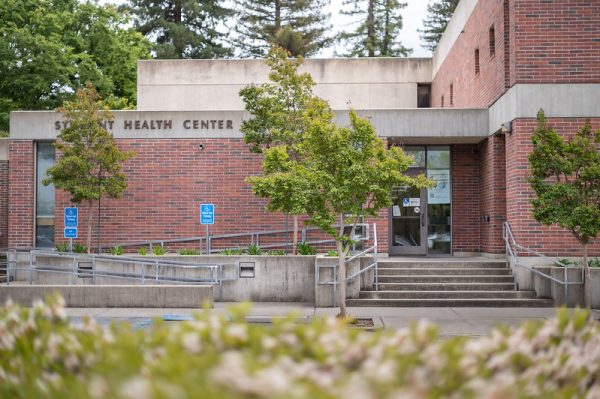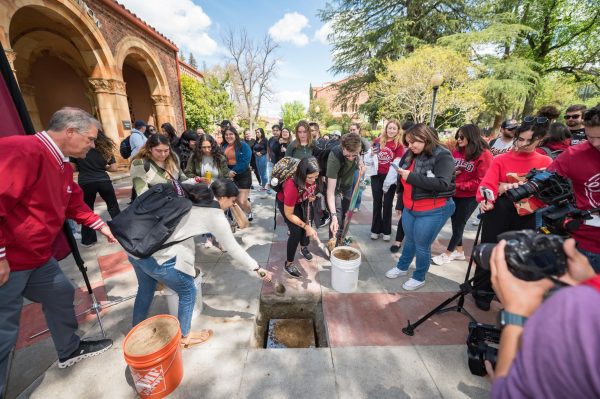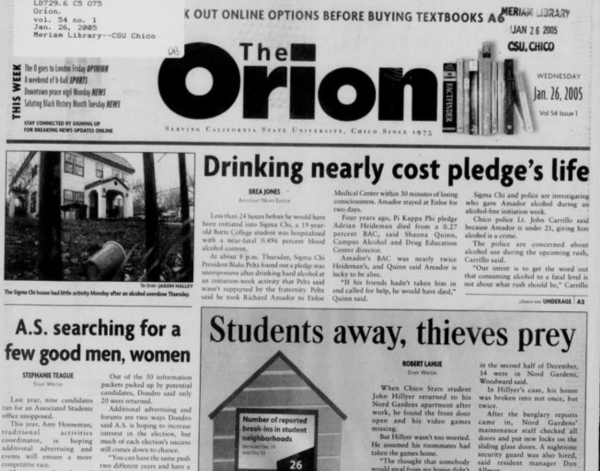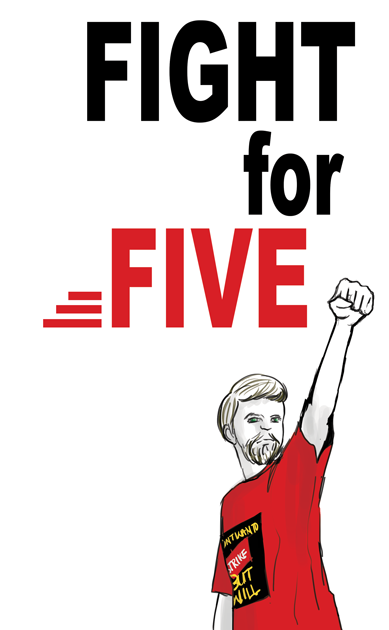CSU faculty strike shows college turning into business
News of a faculty strike on California State University campuses has confirmed all suspicion that college has turned into an institution with a bigger view of their profit margins than their students.
CSU faculty members will be going on strike this April. The strike will take place April 13-15 and 18-19, meaning faculty members will not be working or teaching.
This will be the biggest walkout from professors and instructors since they won bargaining rights back in the ’80s, impacting more than 460,000 students and 26,000 faculty members.
When I first heard about this strike, I immediately became upset. Tuition costs keep going up, yet students are still missing out on class, so what exactly are we paying for? However, when I began looking into the details, the strike seems long overdue.
Back in 2006 the faculty asked for a 10 percent pay increase which was ultimately turned down due to the recession. Ten years later, the faculty is asking for a 5 percent pay increase but are only being offered a 2 percent increase.
When accounting for inflation, the average CSU faculty member has received a 7 percent pay cut since 2008.
What exactly is going on? There is definitely a problem on CSU campuses that needs to be solved, but the problem is not the strike. Faculty members are getting the short end of the stick and should be encouraged to fight for their raises.
Back in the ’80s, Chico State tuition was less than $800. Today it is more than $5,000. Where is the money going if not to the faculty members?
It turns out that most of this money ends up in the hands of our administration. There are a few interesting facts that support the idea that college is becoming more of a business rather than an institution of education.
From 2004 to 2014, the number of CSU managers grew by 19.2 percent while the number of faculty members fell by 3 percent.
During this time, Chico State lost 14 percent of their faculty members who were on their way to receiving tenure. Also during this time, Chico State received a 14 percent increase in full-time students. Faculty professors and lecturers have gained a larger work load while losing faculty to help handle it.
The CSU faculty strike would cost roughly $102.3 million. This sounds like a lot, however the CSU system had around $500 million in excess in 2015.
You could say that if faculty members truly cared about their job they wouldn’t worry about the money, except about 60 percent of CSU faculty members can’t afford to live in their college community.
With all these overwhelming numbers, it’s hard to disagree with any faculty member who would want to strike. It isn’t just reasonable that the faculty wants to go on strike, it would be unreasonable if it didn’t and did nothing.
Even when accounting for inflation, student tuition is much greater now than it was 30 years ago. Now as we pay more than ever, we lose the opportunity to learn. The CSU system has more than $2 billion in reserves. This convinces me that college has lost its higher education purpose and become a way of making money.
The faculty needs to stand up to the administration and call their bluff. Two percent is unjust. In fact, 5 percent may be unjust as well. With so many students coming into every university, there should at least be more staff to account for the greater work load.
It should be clear, though, that none of the faculty is to blame for this, but the people involved in the managerial office who would allow this to happen.
Although it would mean missing out on lecture time, the faculty should be supported during the strike. It’s unacceptable that the faculty and the students have had to take a backseat for the sake of making more money.
Administrators should take responsibility for this mistreatment. Hopefully this strike will challenge them and help redirect the goals of CSU campuses back toward educating.
The focus of college needs to shift back to learning. The fact that I might miss a week of class because of money shows that money has gained higher priority over my education.
Jeff Guzman can be reached at [email protected] or @theorion_news on Twitter.



















Michael Smith // Apr 8, 2016 at 10:51 am
Should funding higher education be this hard? I have the despairing thought that greed and stupidity are steering Calf. higher education into the shoals. We need smarter and more enlightened captains.
Dr. Gerrell Drawhorn // Apr 6, 2016 at 6:27 pm
Good article Jeff. Hi Shay! Appreciate your concern. You do deserve a faculty member to be available. At the same time realize that the AVERAGE salary of a FT Engineering Professor with a Ph.D. over a decade of experience might be $45,000. That’s comparable to a Community College or HS teacher…and far less that someone in private industry. They are likely making huge sacrifices to be your instructor at that salary. Many eventually are so frustrated with the stagnation on the salary issue (which actually goes back to about 2001 with the California Recession) that they are easily recruited by colleges elsewhere in the country…or private industry.
So when they disappear, and there isn’t a replacement, what happens? Mandatory courses don’t have an instructor…sections are cancelled and graduations are delayed, sometimes up to a year. That’s another $10,000 in debt for students who can’t graduate. And if a replacement instructor is found they may not be a specialist, impacting the quality of your education and your preparation in the field. And ultimately the reputation of the major.
Poor salaries affects recruitment of the best and necessary instructors (who often come in with substantial debt), the retention of even tenured faculty, and faculty are now expanded to do more with less – grading materials that were once done by readers or lab instructors.
Shay // Apr 5, 2016 at 5:18 pm
$50 per class period…. I’m responsible for an entire week of thermodynamics on my own, a class that I’m already struggling to keep up with. Why is it that I feel like this only still might happen because the administrators and teachers crave the excitement of a strike. Surely at a place of higher learning we can just reach a compromise before I miss class… Lets be real here.
Nice article Jeff.